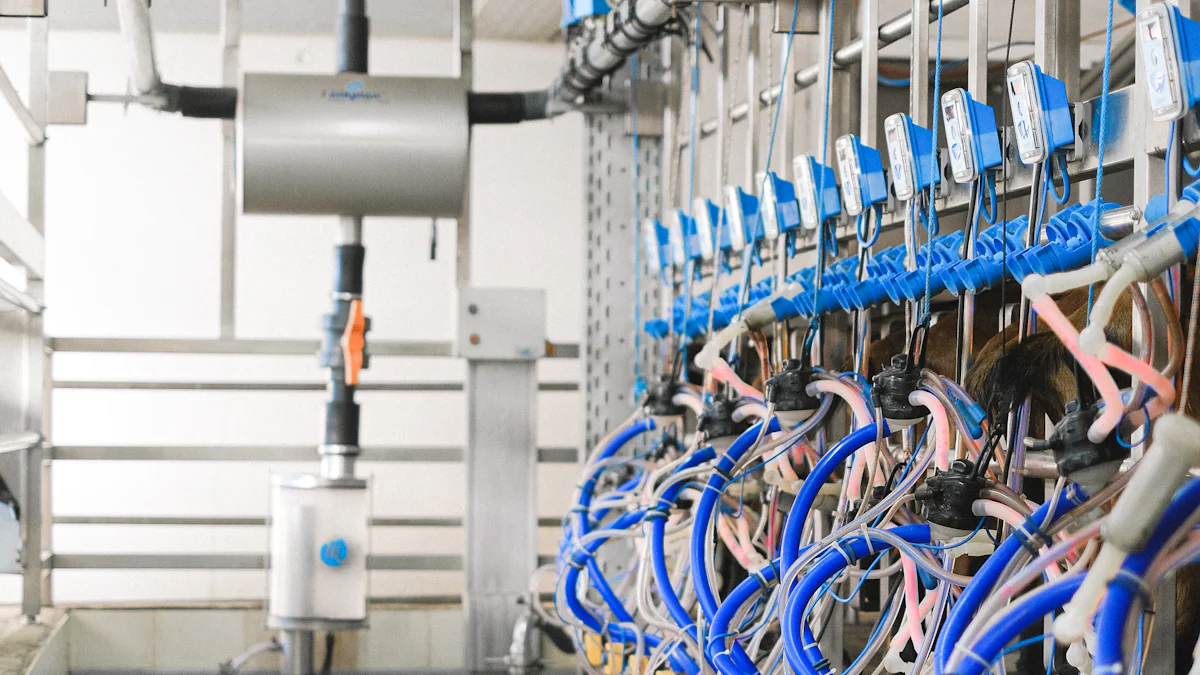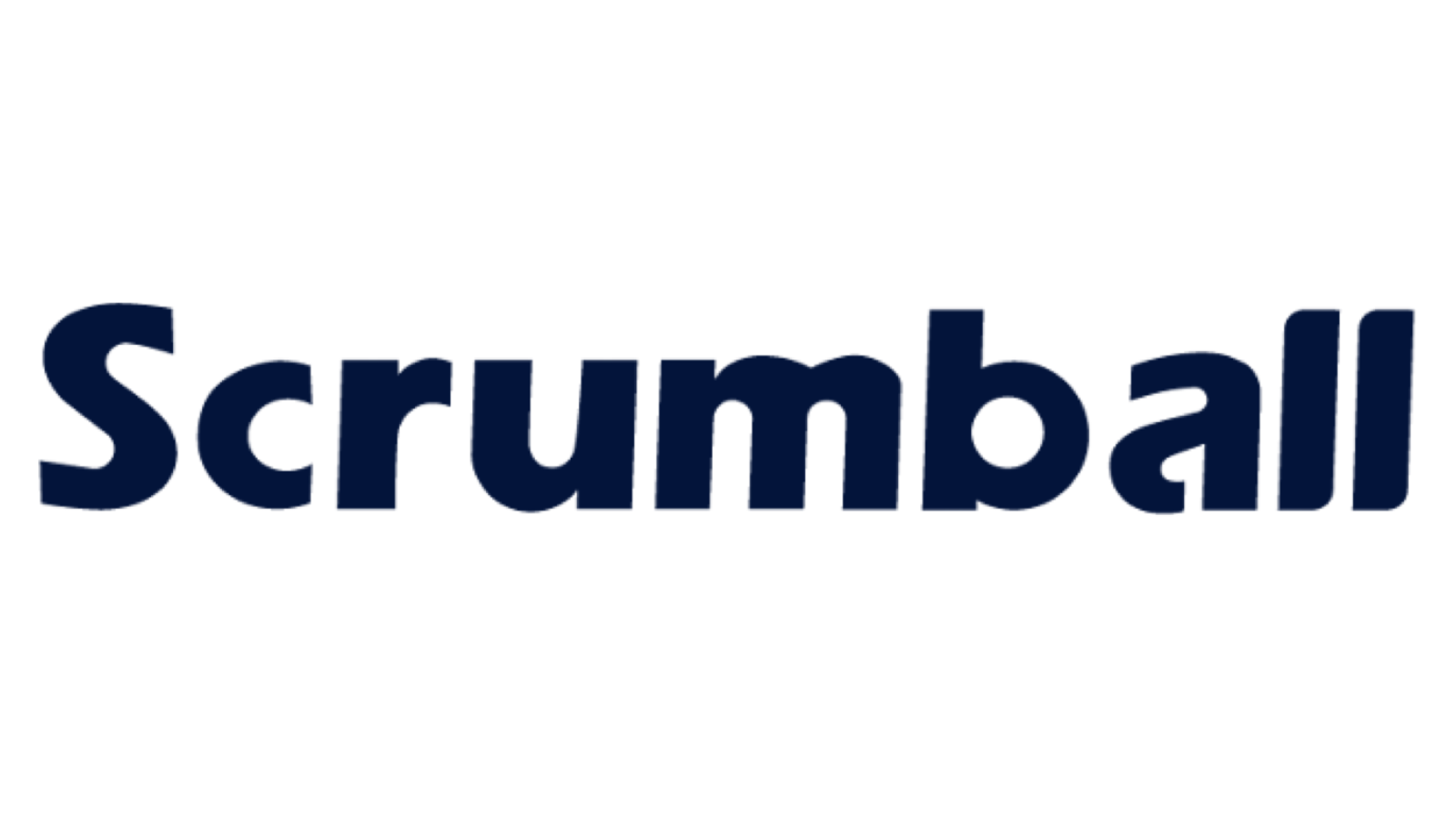Top 10 B2B Marketing Automation Platforms for 2025

In 2025, business to business marketing automation is no longer optional. It’s a necessity for companies aiming to stay competitive. Businesses are increasing their spending on marketing technology, signaling a rapid adoption of marketing automation platforms. These tools simplify data management, automate repetitive tasks, and enhance lead nurturing. With AI-powered features like chatbots, you can boost lead generation by up to 20%. Marketing automation empowers you to deliver personalized experiences, track campaign performance, and improve collaboration between teams. If you want to transform your strategies and drive results, adopting the right platform is essential.
Understanding Business to Business Marketing Automation
What Is Marketing Automation?
Marketing automation applies technology to streamline and optimize repetitive marketing tasks. It allows you to focus on strategy while the software handles the heavy lifting. In a business to business marketing automation context, it’s all about improving efficiency and driving results. These platforms help you nurture leads, engage your target audience, and deliver personalized experiences at scale.
Key components of marketing automation include:
- Audience segmentation: Target specific groups with tailored campaigns.
- CRM integration: Manage data seamlessly across platforms.
- Analytics and reporting: Measure performance and refine strategies.
Additionally, features like account-based marketing (ABM) and lead scoring ensure you prioritize high-value prospects. By aligning sales and marketing teams, you can create a unified approach to customer engagement.
Benefits of Marketing Automation for B2B Companies
Streamlining Workflows and Repetitive Tasks
Marketing automation software saves you time by automating routine tasks like email campaigns, social media scheduling, and data entry. This efficiency allows you to focus on revenue-generating activities. Studies show that automation can save marketers hours each week, freeing up resources for strategic planning.
Enhancing Lead Generation and Nurturing
Effective lead generation and nurturing are critical for b2b saas companies. Automation tools help you identify, qualify, and engage leads with precision. Features like lead scoring prioritize prospects based on their behavior and fit, improving conversion rates. Automated nurturing campaigns maintain interest and build relationships without draining your team’s energy.
Improving Customer Engagement and Retention
Personalization is key to retaining customers in today’s competitive landscape. Marketing automation platforms use ai marketing tools to deliver tailored content and experiences. This approach strengthens relationships and keeps your brand top-of-mind. Businesses using automation report an 800% ROI within two years, highlighting its impact on customer engagement.
Leveraging Data for Actionable Insights
Data is the backbone of any successful b2b marketing strategy. Automation platforms provide analytics that reveals what works and what doesn’t. You can track campaign performance, understand customer behavior, and make data-driven decisions. These insights empower you to refine your strategies and achieve better results.
| Benefit | Description |
|---|---|
| Improved Lead Generation | Marketing automation enhances strategies for lead generation, nurturing, and customer experiences. |
| Time Savings | Automation saves hours weekly by handling repetitive tasks, allowing marketers to focus on revenue. |
| Cost Reduction | Automating campaigns can reduce marketing expenses by 12.2%, increasing overall efficiency. |
| Quality Lead Generation | Provides insights into consumer behavior, helping to convert visitors into prospects. |
| Seamless Lead Nurturing | Automated nurturing maintains interest and builds relationships without draining resources. |
| Enhanced Lead Scoring | Allows prioritization of leads based on their potential value, improving conversion rates. |
| Alignment of Marketing and Sales | Facilitates collaboration between teams, improving lead conversion through shared insights. |
By adopting a marketing automation platform, you can transform your b2b saas strategy and stay ahead in 2025.
Best B2B Marketing Automation Platforms for 2025

HubSpot
Features
HubSpot stands out as a marketing automation platform with robust inbound marketing capabilities. It helps you attract, engage, and delight customers through content-driven strategies. The platform integrates seamlessly with HubSpot’s other tools, such as Sales, Service, and CMS, creating a unified experience. You can also benefit from account-based reporting, multi-touch revenue attribution, and centralized content management. Regular updates and a strong community of users ensure you stay ahead in the competitive B2B SaaS landscape.
Pricing
HubSpot offers flexible pricing tiers to suit businesses of all sizes. Whether you’re a startup or an enterprise, you can find a plan that aligns with your budget and needs. The scalability of the platform ensures it grows with your business.
Pros
- User-friendly interface reduces the learning curve.
- Extensive integration options with third-party tools.
- Strong focus on AI-driven personalization and analytics.
Cons
- Advanced features may require higher-tier plans.
- Some users find the cost steep as their business scales.
Ideal Users
HubSpot is ideal for businesses seeking a comprehensive marketing automation platform with inbound marketing capabilities. It’s perfect for teams that value ease of use and integration with other tools.
Adobe Marketo Engage
Features
Adobe Marketo Engage excels in personalized engagement and multi-channel marketing automation. It empowers you to create tailored campaigns across email, social media, and web channels. The platform’s AI marketing tools enhance customer engagement by delivering the right message at the right time. Its advanced analytics provide actionable insights to refine your strategies.
Pricing
Marketo Engage offers four pricing tiers to accommodate various budgets. While it’s considered expensive, the platform delivers value through its robust features and excellent customer support.
Pros
- Exceptional for enterprise-level businesses.
- Strong focus on AI-powered personalization.
- Comprehensive multi-channel marketing capabilities.
Cons
- High cost compared to competitors.
- Steeper learning curve for new users.
Ideal Users
Marketo Engage is best suited for large enterprises and B2B SaaS companies that require advanced personalization and multi-channel marketing automation.
Salesforce Marketing Cloud Account Engagement (Pardot)
Features
Pardot, part of the Salesforce ecosystem, simplifies lead management and customer engagement. It offers advanced lead nurturing, intelligent lead assignment, and contextual insights for sales teams. The platform’s AI marketing tools enable personalized drip campaigns, ensuring your leads receive relevant content at every stage.
Pricing
Pardot’s pricing reflects its enterprise-grade capabilities. While it may seem costly, the platform eliminates the need for complex integrations, saving you time and resources.
Pros
| Advantage | Explanation |
|---|---|
| Integration with Sales Cloud | Leads move from marketing to sales faster, improving conversion rates. |
| Built on Salesforce Platform | Eliminates the need for complex API integrations, saving time and costs. |
| Advanced Lead Nurturing | Personalized drip campaigns enhance customer journeys. |
| Intelligent Lead Assignment | Automates lead assignment based on scoring, improving efficiency. |
| Contextual Information for Sales | Provides insights into lead behavior, enabling tailored conversations. |
| Reporting and Analytics | Offers insights into marketing effectiveness, aligning efforts with revenue goals. |
Cons
- Higher cost may deter smaller businesses.
- Requires familiarity with the Salesforce ecosystem.
Ideal Users
Pardot is perfect for businesses already using Salesforce. It’s a great choice for teams focused on aligning marketing and sales efforts.
ActiveCampaign
Features
ActiveCampaign combines email marketing, CRM, and automation into one powerful platform. Its standout features include advanced segmentation, dynamic content, and AI-driven predictive sending. These tools ensure your messages reach the right audience at the perfect time. The platform also offers robust integrations with over 850 apps, making it a versatile choice for B2B SaaS companies.
Pricing
ActiveCampaign provides flexible pricing plans starting at $29 per month. The cost scales based on the number of contacts and features you need. A free trial is available, allowing you to explore its capabilities before committing.
Pros
- Intuitive interface simplifies campaign creation.
- AI marketing tools enhance personalization and engagement.
- Extensive app integrations support diverse business needs.
Cons
- Advanced features may overwhelm beginners.
- Pricing increases with contact list size.
Ideal Users
ActiveCampaign is perfect for B2B SaaS companies aiming to streamline operations and boost customer engagement. For example, Internet Strategy Labs used its automation features to simplify workflows, while Motrain increased trial conversions by 120%. If you want to enhance lead nurturing and drive conversions, this platform is an excellent choice.
Brevo
Features
Brevo stands out with its multi-channel marketing capabilities. You can run campaigns across email, SMS, and WhatsApp. It includes a free CRM for managing leads and offers personalized chat tools for real-time engagement. Unique features like transactional emails and AI-powered automation workflows make it a top contender among marketing automation platforms.
Pricing
Brevo offers cost-effective pricing, starting with a free plan that includes essential features. Paid plans begin at $25 per month, making it ideal for startups and small businesses.
Pros
- Affordable pricing suits smaller budgets.
- User-friendly interface with a drag-and-drop email builder.
- AI marketing tools simplify workflow automation.
Cons
- Limited advanced features for enterprise-level users.
- Fewer integrations compared to competitors.
Ideal Users
Brevo is ideal for startups and small businesses seeking affordable marketing automation. Its multi-channel tools and AI-driven personalization make it a great choice for businesses looking to engage customers across various platforms.
SharpSpring
Features
SharpSpring offers a comprehensive suite of tools for B2B marketing. Its features include dynamic forms, behavioral tracking, and AI-powered lead scoring. The platform also excels in CRM integration, enabling seamless collaboration between marketing and sales teams.
Pricing
SharpSpring’s pricing starts at $449 per month, catering to businesses that need advanced features. While it’s on the higher end, the platform delivers excellent value for its capabilities.
Pros
- Advanced AI marketing tools for lead scoring and nurturing.
- Strong CRM integration enhances team collaboration.
- Comprehensive analytics for data-driven decisions.
Cons
- High pricing may deter smaller businesses.
- Steeper learning curve for new users.
Ideal Users
SharpSpring is best for mid-sized and large B2B SaaS companies. If you need advanced AI tools and robust CRM integration to align your marketing and sales efforts, this platform is a strong contender.
Act-On
Features
Act-On offers a robust suite of tools designed to simplify your marketing efforts. Its standout features include advanced email marketing, lead scoring, and behavioral tracking. The platform excels in integration capabilities, allowing seamless connectivity with other business tools.
| Integration Capability | Description |
|---|---|
| Advanced Webhooks | Share data and trigger marketing actions to boost engagement and efficiency. |
| Native CRM Integrations | Enable bidirectional data flow with leading CRMs for better lead management. |
| External BI System Support | Share data with tools like Tableau and PowerBI for enhanced reporting. |
| Event Management Integration | Automatically update leads based on event registrations. |
| Real-time Communication | Integrate with Slack and MS Teams for campaign updates and team alignment. |
Pricing
Act-On offers flexible pricing tailored to your business size and needs. Plans start at $900 per month, making it a premium option for businesses seeking advanced features.
Pros
- Strong integration capabilities with CRMs and BI tools.
- Advanced lead scoring and behavioral tracking.
- Comprehensive analytics for campaign performance insights.
Cons
- Higher pricing may not suit smaller businesses.
- Limited customization options for templates.
Ideal Users
Act-On is ideal for mid-sized and large B2B SaaS companies. If you need a platform that integrates seamlessly with your existing tools and prioritizes lead generation, this is a great choice.
Zoho Marketing Automation
Features
Zoho Marketing Automation is a versatile platform designed for small to medium-sized businesses. It offers tools for email marketing, social media management, and lead nurturing. Its AI marketing tools help you automate workflows and deliver personalized campaigns.
Pricing
Zoho provides affordable pricing plans starting at $10 per month. This makes it one of the most cost-effective automated marketing platforms for growing businesses.
Pros
- Budget-friendly pricing for small businesses.
- Easy-to-use interface with drag-and-drop functionality.
- AI-powered insights for better decision-making.
Cons
- Limited scalability for enterprise-level needs.
- Fewer advanced features compared to competitors.
Ideal Users
Zoho is perfect for small to medium-sized B2B SaaS companies. It helps you find the best leads, close more sales, and allocate your budget to revenue-driving activities. If you want to increase customer engagement and make data-driven decisions, Zoho is an excellent choice.
Klaviyo
Features
Klaviyo specializes in email and SMS marketing, offering advanced segmentation and AI-driven predictive analytics. Its AI marketing tools ensure your messages reach the right audience at the right time. The platform also supports integrations with e-commerce platforms, making it a favorite among online businesses.
Pricing
Klaviyo’s pricing adjusts based on your contact list size and email volume. It offers a free plan for smaller businesses and volume-based discounts for larger enterprises, ensuring scalability as your business grows.
Pros
- Advanced AI marketing tools for personalization.
- Flexible pricing models for businesses of all sizes.
- Seamless integration with e-commerce platforms.
Cons
- Limited features for non-e-commerce businesses.
- Pricing can increase significantly with larger contact lists.
Ideal Users
Klaviyo is best for B2B SaaS companies with a focus on e-commerce. If you want to leverage AI for personalized campaigns and drive conversions, this platform is a top contender.
Oracle Eloqua
Features
Oracle Eloqua offers a powerful suite of tools designed to elevate your marketing efforts. Its AI marketing tools enable you to create personalized campaigns that resonate with your audience. You can automate lead nurturing, segment your audience, and deliver tailored content across multiple channels. The platform’s advanced analytics provide deep insights into campaign performance, helping you refine your strategies for maximum impact.
Here’s a closer look at Oracle Eloqua’s analytics capabilities:
| Feature | Description |
|---|---|
| Reporting | Access over 70 customizable reports and dashboards to track key metrics. |
| Campaign Analysis | Evaluate campaign performance with metrics for inbound/outbound activity and response rates. |
| Email Analysis | Gain insights into email performance, including opens, clickthroughs, and form submissions. |
| Closed-loop Reporting | Attribute revenue to marketing campaigns to improve ROI and performance. |
| Account Engagement Dashboard | Identify highly engaged accounts and enhance account-based marketing strategies. |
These features empower you to make data-driven decisions and improve the customer experience.
Pricing
Oracle Eloqua’s pricing is tailored to enterprise-level businesses. While it doesn’t offer a fixed pricing structure, you can expect a premium cost that reflects its robust features and scalability. Contact Oracle’s sales team to receive a customized quote based on your business needs.
Pros
- Advanced AI marketing tools for personalized campaigns.
- Comprehensive analytics for data-driven decision-making.
- Strong focus on improving the customer experience.
- Scalable platform suitable for large enterprises.
Cons
- High cost may not suit smaller businesses.
- Steeper learning curve for new users.
Ideal Users
Oracle Eloqua is ideal for large enterprises and B2B marketers who prioritize advanced analytics and AI-driven personalization. If you want to enhance your customer experience and leverage AI marketing tools to optimize campaigns, this platform is a top choice.
How to Choose the Right Marketing Automation Platform

Define Your Business Needs
Clarify Your Marketing Goals
Start by identifying what you want to achieve with a marketing automation platform. Are you looking to streamline workflows, improve lead generation, or enhance customer engagement? Defining clear goals will help you focus on platforms that align with your objectives. For example, if your priority is lead generation, look for tools with advanced lead scoring and segmentation features. Platforms with ai marketing tools can also help you automate repetitive tasks and deliver personalized campaigns, saving time and boosting efficiency.
Understand Your Target Audience
Knowing your target audience is essential for choosing the right platform. Consider their preferences, behaviors, and communication channels. A platform with robust analytics and ai capabilities can help you analyze audience data and tailor your campaigns effectively. For instance, tools that offer predictive analytics can identify trends and optimize your messaging to resonate with your audience.
Evaluate Features and Integrations
Identify Essential Features for Your Business
Not all platforms are created equal. Focus on features that meet your specific needs. Essential capabilities might include email marketing automation, CRM integration, and ROI tracking. If scalability is important, choose a platform that grows with your business. Customization options and dashboards for data visualization are also valuable for monitoring performance and making informed decisions.
Check Compatibility with Existing Tools
Your marketing automation platform should integrate seamlessly with your current tools. Whether it’s your CRM, social media management software, or analytics tools, compatibility ensures smooth data flow and efficient workflows. For example, platforms like HubSpot and Salesforce offer extensive integration options, making them ideal for businesses with complex tech stacks.
Consider Pricing and Scalability
Align with Your Budget
Marketing automation platforms vary widely in cost. Some, like HubSpot, offer free plans with basic features, while others, such as Pardot, charge premium prices for advanced capabilities. Evaluate your budget and consider hidden costs like onboarding fees or additional users. For instance, ActiveCampaign’s Lite plan starts at $17 per month, making it a cost-effective option for small businesses.
Ensure Scalability for Future Growth
Your platform should support your business as it grows. Look for tools that can handle an expanding customer base without compromising performance. AI-powered platforms often excel in scalability, ensuring your marketing efforts remain efficient and personalized as your business evolves. This future-proofing will save you time and resources in the long run.
Leverage Reviews and Recommendations
Analyze User Reviews and Case Studies
User reviews and case studies are invaluable when selecting a marketing automation platform. They provide real-world insights into the strengths and weaknesses of different tools. Reviews from actual users highlight which platforms excel in specific areas, such as ai-powered personalization or workflow automation. For instance, feedback on platforms like Adobe and IBM Marketing Cloud often reveals how these tools perform in real-world scenarios.
Reliable sources for user reviews include trusted websites and forums. Look for platforms like G2, TrustRadius, and Capterra. These sites compile detailed feedback from verified users, helping you understand which platform aligns with your business needs. Case studies also offer a deeper look into how companies have successfully implemented ai marketing tools to achieve their goals. By analyzing these resources, you can make an informed decision and avoid costly mistakes.
Seek Advice from Peers
Your peers can be an excellent source of recommendations. Reach out to colleagues or industry professionals who have experience with marketing automation platforms. They can share their firsthand experiences, including the challenges and benefits of specific tools. Networking events, LinkedIn groups, and professional forums are great places to connect with others in your field. Their advice can guide you toward platforms that deliver results and fit your budget.
Test Platforms Through Free Trials and Demos
Assess Usability and Functionality
Free trials and demos allow you to explore a platform’s usability and functionality before committing. During a trial, you can test features like ai-driven automation workflows or lead scoring tools. This hands-on experience helps you determine if the platform meets your expectations. Demos, on the other hand, highlight key features and guide you through the platform’s capabilities. They also help you identify which tools to focus on during your trial period.
| Benefit | Description |
|---|---|
| Effective Onboarding | Free trials paired with good onboarding ensure a smooth start. |
| Feature Identification | Demos help you pinpoint essential features to test. |
| Cost-Effectiveness | Free trials save money compared to hiring a sales team for demonstrations. |
| Increased Conversion | Self-serve onboarding boosts trial-to-paid conversion rates. |
Confirm the Platform Meets Your Needs
A free trial is your opportunity to confirm that the platform aligns with your business goals. Evaluate how well it integrates with your existing tools and whether it scales with your growth. Pay attention to how ai marketing tools enhance your campaigns. For example, predictive analytics can help you optimize messaging and improve engagement. By testing the platform thoroughly, you can ensure it delivers the value you need to succeed.
Marketing automation is your key to B2B success in 2025. It saves time, reduces costs by 12.2%, and boosts sales productivity by 14.5%. You can nurture leads more effectively, generating 451% more qualified prospects. These tools also enhance ROI through personalized strategies and targeted communications.
Each platform offers unique strengths. For example:
- HubSpot excels in inbound marketing and seamless integration.
- ActiveCampaign provides advanced segmentation and built-in CRM.
- Marketo specializes in account-based marketing and personalized campaigns.
- Salesforce Marketing Cloud integrates deeply with Salesforce CRM for detailed reporting.
Evaluate your goals and audience. Choose a platform that aligns with your needs. The right tool will transform your marketing strategy and drive growth.
FAQ
1. What is the main benefit of using a B2B marketing automation platform?
Marketing automation saves time and boosts efficiency. It automates repetitive tasks like email campaigns and lead scoring. You can focus on strategy while the platform handles execution. This leads to better lead nurturing, higher conversions, and improved ROI.
2. How do I know which platform is right for my business?
Define your goals and evaluate your needs. Look for features like CRM integration, scalability, and AI tools. Test platforms through free trials or demos. Check reviews and recommendations to ensure the platform aligns with your objectives and budget.
3. Are marketing automation platforms suitable for small businesses?
Yes! Many platforms, like Zoho and Brevo, offer affordable plans tailored for small businesses. These tools help you streamline workflows, engage customers, and grow your business without breaking the bank.
💡 Tip: Start with a free or low-cost plan to explore features before upgrading.
4. Can marketing automation improve customer retention?
Absolutely! Automation delivers personalized experiences through tailored content and timely communication. Engaged customers are more likely to stay loyal. Platforms with AI-driven insights help you understand customer behavior and refine your retention strategies.
5. Is it difficult to implement a marketing automation platform?
Most platforms offer user-friendly interfaces and onboarding support. Choose one with excellent customer service and training resources. Platforms like HubSpot and ActiveCampaign simplify the learning curve with intuitive designs and tutorials.
🚀 Pro Tip: Start small. Focus on automating one process at a time to ease the transition.
See Also
15 Essential Influencer Marketing Platforms For 2024 Success
10 Budget-Friendly Influencer Marketing Platforms For 2024
Best Influencer Marketing Platforms To Boost E-commerce Sales
20 Key Influencer Marketing Statistics Every Marketer Should Know
Navigating Influencer Marketing Platforms For Small Business Growth
